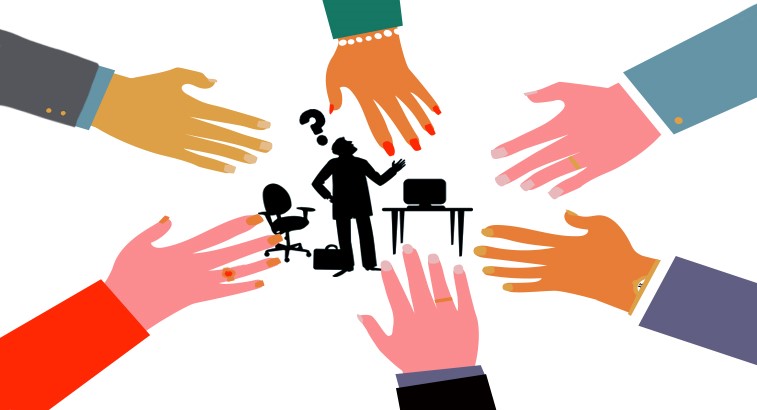Diversity & Inclusion? Let’s talk Belonging
I recently read a nice quote from Maya Angelou: ‘You only are free when you realize you belong no place − you belong every place − no place at all. The price is high. The reward is great.’ Seemingly, Angelou wants to say: no matter how difficult it is, if you want to be free − a primal human need − try not to belong to anything, but to be yourself. Wise words, because within many organizations I see that employees seemingly effortlessly conform to the cultural standards of behaviour that apply there.
Seemingly, because in reality authenticity and attachment (the degree of belonging, the connection with the culture of an organization) are at odds with each other. One of the most important reasons why people don’t want to change is a deep-rooted fear of no longer belonging to the group and therefore becoming isolated or (psychologically) alone as a result. The fear of being expelled from the insider group is so great that most people would rather conform than display authentic behaviour, with all its consequences.
Research shows that the lack of opportunities to express oneself is one of the most important causes of stress (in addition to uncertainty, lack of information and insufficient control). For many employees, the daily reality is that somewhere at the top of the organization, decisions are made by leaders they never actually see in the flesh. Also, they don’t feel that their own insights and comments are really being heard. The result is alienation, a disconnect between employee and organization. And that in turn leads to an increase in the number of burnouts, low involvement, inability to hold on to talents and allow them to be promoted, and so on.
Organisations would do well to come up with alternative binding mechanisms
Why this long introduction? Because in the United States, diversity and inclusion are increasingly being replaced by a new concept: the word ‘belonging’. According to Sam Lalanne, global head of D&I at Citigroup, the phrase ‘a sense of belonging’ means that you can be completely yourself at work and that you don’t feel like you’re another person at work than at home. In other words: authenticity and attachment go hand in hand. There is an atmosphere of togetherness (‘we do it together’) but also one of safety (‘you can be who you are’).
Dutch behavioral scientist Ali Fenwick does not use the word ‘belonging’, but he does state that the traditional exchange model (pay for work, conform for security) is on its last legs. According to him, organisations would do well to come up with alternative binding mechanisms to increase the involvement of employees. He calls this ‘social identity’. This mechanism ensures that employees personally identify with organisational characteristics such as values, norms, ideals and management styles, leading to a feeling of pride and togetherness. Fenwick states: the more the employee identifies with the organizational vision and goals, the more influence the organization has on how the employee identifies and commits himself.
The key question, of course, is: how do we achieve better (more sincere) binding mechanisms and how do we create an atmosphere of safety and togetherness? I’m afraid that really starts at the top of the organisation. The top and in particular the CEO must actively participate in order to increase the degree of solidarity. This participative leadership means that leaders become aware of their own behaviour (and where it originates!) and its effects on their immediate environment and the rest of the organisation. Not easy, sometimes painful, but much needed.
Finally, no matter how much I agree with this pursuit of a sense of belonging, it has to be sincere. If others determine your sense of belonging, you will continue to increase your distance from yourself. Entering into a healthy relationship with yourself is a prerequisite for entering into a healthy relationship with someone else. This leads to more solidarity and, as far as I am concerned, also contributes to value creation, sustainability and relevant organisations.



